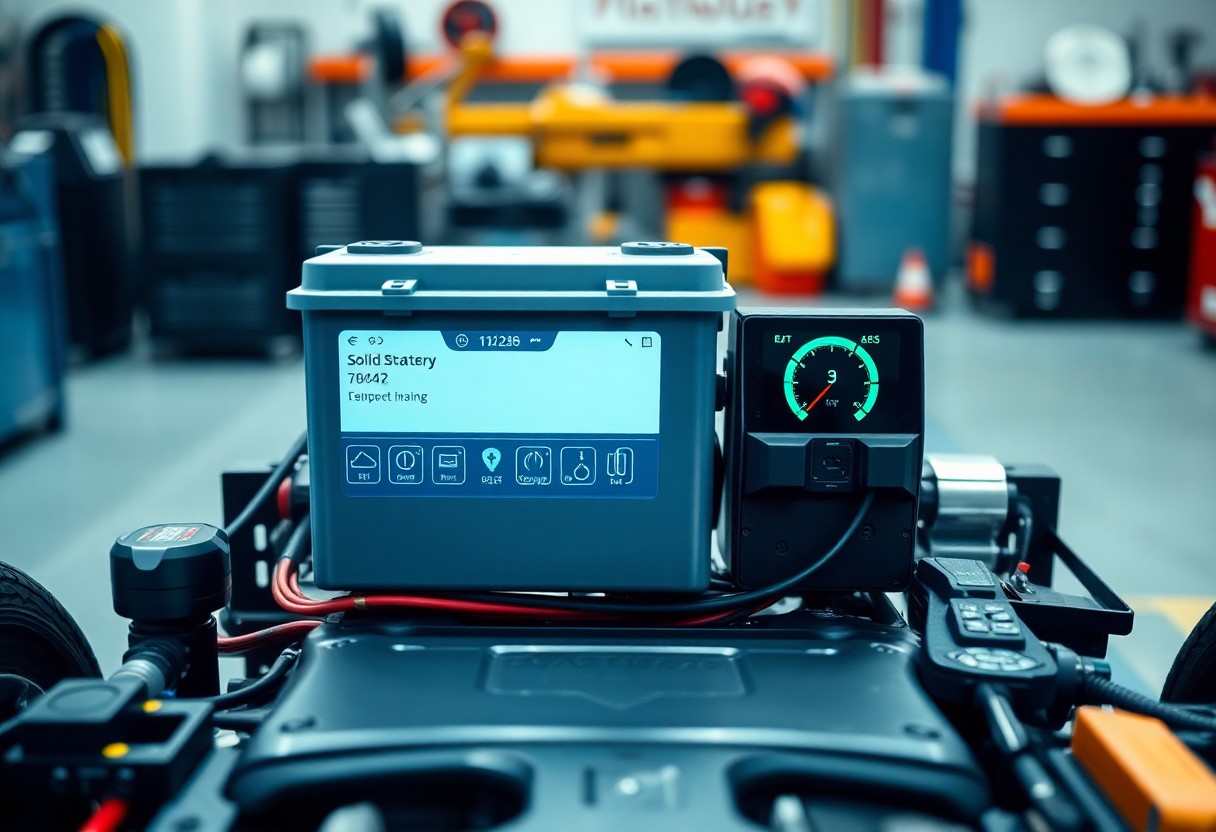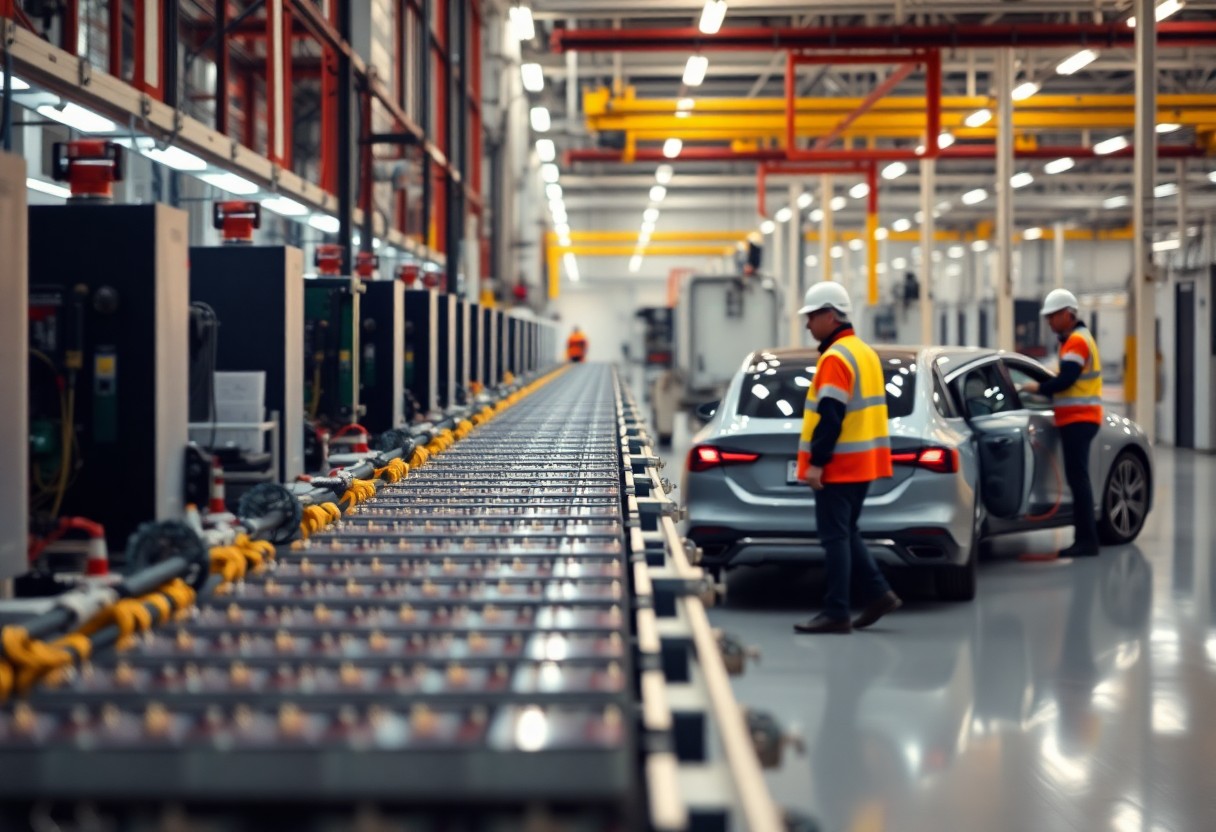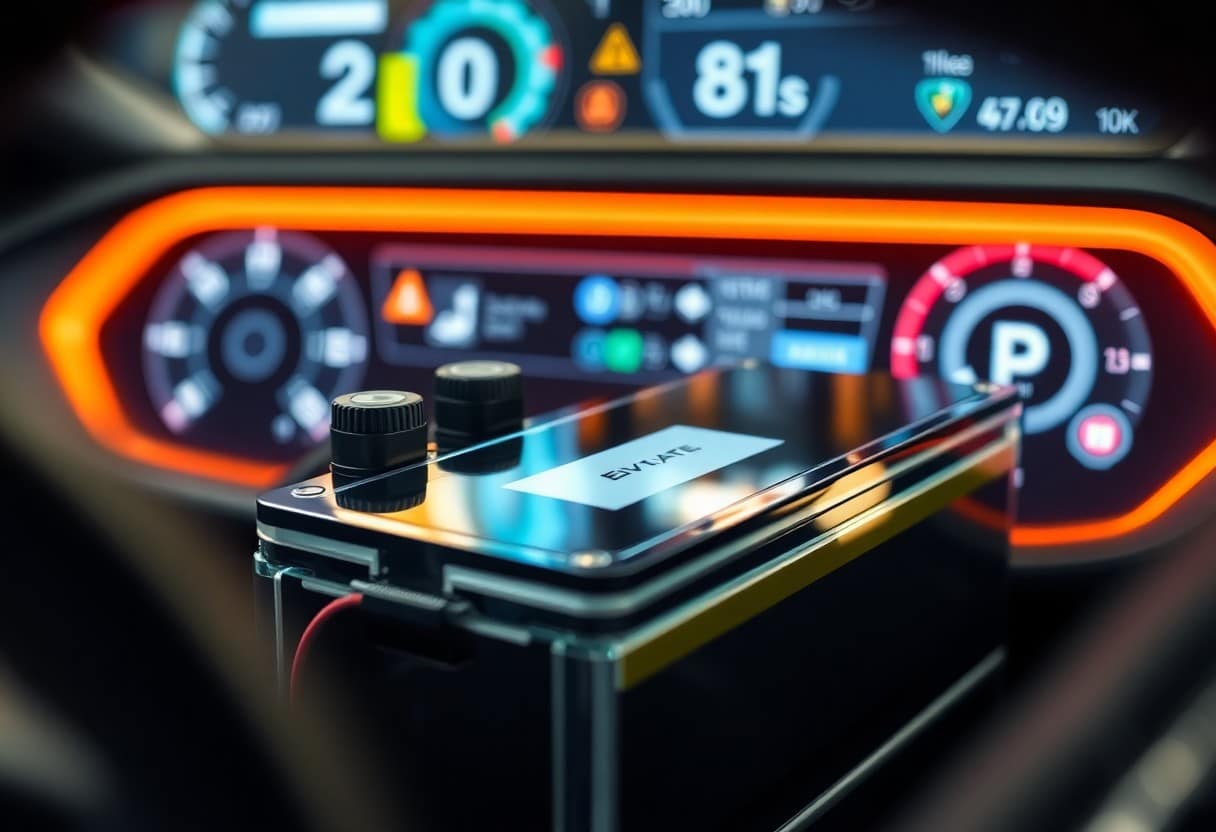EV technology is rapidly evolving, and one of the most promising advancements lies in solid-state batteries. You may be wondering how these innovative power sources can enhance your electric vehicle’s range and performance. By replacing traditional liquid electrolytes with solid materials, solid-state batteries offer greater energy density, faster charging times, and improved safety. As this technology continues to develop, you could soon experience a significant transformation in the efficiency and capabilities of your EV, paving the way for a more sustainable and enjoyable driving experience.
The Breakthrough Chemistry of Solid-State Batteries
Solid-state batteries represent a significant leap in battery chemistry, replacing liquid electrolytes with solid materials that enhance performance. This innovative approach allows for higher energy density, improved thermal stability, and greater longevity. By utilizing materials such as sulfide and ceramic electrolytes, these advancements reduce the risk of dendrite formation, which has long plagued traditional lithium-ion batteries. The shift to solid-state technology not only promises to boost electric vehicle (EV) range but also unlocks new possibilities for the future of energy storage.
Unique Materials Enhancing Energy Density
The materials employed in solid-state batteries play a vital role in improving energy density. Innovations such as lithium metal anodes and high-capacity cathodes enable the storage of more energy within the same volume, translating to longer driving ranges for your electric vehicle. Additionally, these materials facilitate faster ion transport, which significantly reduces charging times. As a result, you can enjoy extended trips with the added convenience of fewer stops for charging.
Safety Improvements Over Traditional Lithium-Ion Batteries
The solid-state architecture inherently enhances safety compared to traditional lithium-ion batteries by eliminating flammable liquid electrolytes. In the event of a battery breach, solid-state batteries are less likely to ignite or explode, providing peace of mind when driving your EV. Moreover, the solid materials are more resistant to extreme temperatures, enhancing overall safety during operation.
Solid-state batteries also eliminate the risk of thermal runaway, a significant concern with lithium-ion technologies, wherein overheating can lead to catastrophic failure. By utilizing non-flammable materials and more stable reactions, the chances of dangerous incidents decrease dramatically. Various companies in the industry are investing heavily in solid-state research, and prototypes have already demonstrated their ability to withstand challenging conditions. You can drive with confidence knowing that solid-state batteries prioritize your safety while pushing the boundaries of performance in electric vehicles.

Unlocking EV Potential: Range and Efficiency
Solid-state batteries present a game-changing opportunity for electric vehicles, significantly enhancing both driving range and energy efficiency. These advanced batteries utilize solid electrolytes, which deliver higher energy density compared to traditional lithium-ion counterparts. By maximizing the amount of energy stored within a given volume, solid-state batteries can substantially extend distance on a single charge, enabling you to cover more ground without the need for frequent recharging.
How Solid-State Batteries Increase Driving Range
With energy densities potentially exceeding 500 Wh/kg, solid-state batteries can double the range of current EVs. For instance, a compact electric vehicle equipped with solid-state technology could achieve over 500 miles on a single charge. By effectively reducing weight and maximizing energy capacity, these batteries allow manufacturers to deliver longer-lasting performance, liberating you from range anxiety during your journeys.
Impact on Charging Times and Overall Efficiency
The implementation of solid-state batteries not only improves driving range but also accelerates charging times. Fast-charging capabilities enable you to replenish your battery significantly quicker than traditional lithium-ion batteries, with some projections suggesting charging rates could reach 80% in under 15 minutes. This rapid recharging capacity enhances your overall driving experience, making EV ownership more convenient and appealing.
The efficiency gains from solid-state batteries extend beyond just improved charging times. Since these batteries can maintain higher energy density without overheating, they reduce thermal management requirements, leading to lower energy losses during both charging and discharging. Consequently, you experience a more efficient transfer of power, less energy wasted as heat, and a sustained performance that stands in stark contrast to older battery technologies. This remarkable efficiency boost contributes to longer lifespans for your battery and lower costs in the long run, allowing you to enjoy your electric vehicle with fewer concerns about performance and longevity.
Performance in Extreme Conditions
Solid-state batteries are designed to excel in a variety of environmental conditions, performing reliably even in extremes of temperature and humidity. Unlike traditional lithium-ion batteries that may suffer diminished performance under challenging conditions, solid-state technology maintains efficiency, providing a stable range and power output whether you’re driving in sweltering heat or frigid cold. This resilience is a game changer for electric vehicles (EVs), ensuring that your driving experience remains consistent and dependable, regardless of external factors.
Thermal Stability in Diverse Environments
Your vehicle’s battery performance is significantly enhanced by the thermal stability of solid-state batteries. These batteries can operate efficiently within a broader temperature range without risking thermal runaway or degradation. This stability not only protects the battery but also prolongs the lifespan, making it more reliable in varying climates and terrains. Such performance enhancements translate to less downtime and a more enjoyable driving experience.
Longevity and Lifecycle Compared to Conventional Batteries
Solid-state batteries typically exhibit a longer lifecycle than conventional lithium-ion batteries, often lasting up to twice as long. This increased longevity is attributed to their solid electrolyte, which reduces wear and tear during charging cycles. With fewer replacements needed over time, you can enjoy considerable cost savings alongside improved vehicle performance and sustainability, making the shift towards solid-state technology not just a smart choice, but a financially astute one.
Comparison of Battery Longevity
| Battery Type | Typical Lifespan (Cycles) |
| Conventional Lithium-Ion | 500-1,500 cycles |
| Solid-State Batteries | 2,000-4,000 cycles |
The extended lifecycle of solid-state batteries results from their robust construction and efficiency during charge and discharge cycles, allowing them to maintain higher performance levels over time. The solid electrolyte minimizes the risk of dendrite formation, a common issue in liquid electrolytes that can lead to battery failure. As you consider the long-term costs of battery replacement in EVs, solid-state technology stands out as a superior choice for ensuring both reliability and value over the years.
Benefits of Longer Lifespan
| Advantage | Impact |
| Fewer replacements | Reduces overall costs |
| Improved resale value | Increases vehicle worth |
| Less waste | Enhances environmental sustainability |

Economic Implications and Market Adoption
As solid-state batteries gain traction, the economic landscape surrounding electric vehicles is poised for significant change. Higher upfront costs associated with solid-state technology often raise concerns for consumers and manufacturers alike. However, the long-term savings on energy efficiency, maintenance, and longevity make these batteries an attractive investment for the future of transportation. Early adoption may require financial commitment, but the resulting improvement in performance and reduced operational costs can ultimately offset initial expenses.
Cost Analysis: Initial Investment vs Long-Term Gains
While the initial investment in solid-state batteries can be steep, your long-term gains can far outweigh upfront costs. Advanced manufacturing processes and improvements in raw materials may lead to a decrease in prices over time, ultimately making solid-state options more accessible. You can expect lower maintenance costs due to enhanced durability and longer lifespans of these batteries, translating into significant savings for EV owners.
Industry Leaders and Strategic Partnerships
The race to develop solid-state batteries is heating up, with major automotive manufacturers and tech companies forming strategic partnerships to pool resources and share technological advancements. Companies like Toyota and Panasonic are collaborating to accelerate battery innovations, while startups such as QuantumScape are attracting investments from heavyweights like Volkswagen to bring their cutting-edge solutions to market. These alliances are imperative not only for technological breakthroughs but also for ensuring widespread adoption and market readiness.
Strategic partnerships play a pivotal role in smoothing the transition to solid-state batteries. Automotive giants leverage their manufacturing capabilities to refine production techniques, minimizing potential bottlenecks. Additionally, collaborations with battery specialists can drive improvements in efficiency and safety, ensuring that these advanced solutions meet regulatory standards and consumer expectations. By fostering a network of shared knowledge and innovation, these relationships enhance market confidence in solid-state technology and facilitate quicker integration into the EV ecosystem.

Challenges and Roadblocks to Widespread Use
A variety of challenges must be addressed before solid-state batteries can achieve widespread adoption in electric vehicles. From manufacturing hurdles to regulatory and consumer acceptance issues, each of these factors plays a significant role in determining how quickly the technology can move from concept to reality. Ultimately, overcoming these barriers will be vital for unlocking the full potential of solid-state batteries in the EV market.
Manufacturing Hurdles in Scaling Production
Scaling the production of solid-state batteries poses unique manufacturing challenges due to their complex components, such as solid electrolytes and various cathode materials. Current production methods are often labor-intensive and lack the scalability needed to meet the rapidly growing demand from the EV sector. Manufacturers will need to innovate and invest significantly in new techniques to reduce production costs and increase output without compromising quality.
Regulatory and Consumer Acceptance Issues
Navigating regulatory standards is another significant challenge for the adoption of solid-state batteries. In various regions, stringent safety and performance certifications are necessary before these batteries can be widely utilized. Additionally, consumer acceptance plays a critical role—your trust in new technology can be a decisive factor, particularly with concerns surrounding safety and longevity. The transition from conventional lithium-ion batteries to solid-state technology requires effort in education and awareness for both manufacturers and consumers.
Consumer acceptance will hinge not only on the operational performance and longevity of solid-state batteries but also on the transparency and communication of their benefits. If you are aware of the distinct advantages—like increased range, shorter charging times, and improved safety profiles—you may be more inclined to embrace this technology. Regulators, on their part, must provide clear guidelines that reassure consumers about the reliability of solid-state options, thus paving the way for a smoother transition. For manufacturers, engaging with both regulatory bodies and end-users provides an opportunity to fine-tune products that meet market needs while maintaining compliance with safety standards.
Conclusion
Considering all points, solid-state batteries have the potential to significantly enhance your electric vehicle’s range and performance. By offering greater energy density, faster charging times, and improved safety, these batteries can transform your driving experience. As developments in this technology progress, you may find yourself enjoying longer journeys and more efficient energy use, ultimately making electric vehicles a more attractive option for everyday transportation. Embracing these innovations could be key to unlocking the full capabilities of your EV in the near future.



